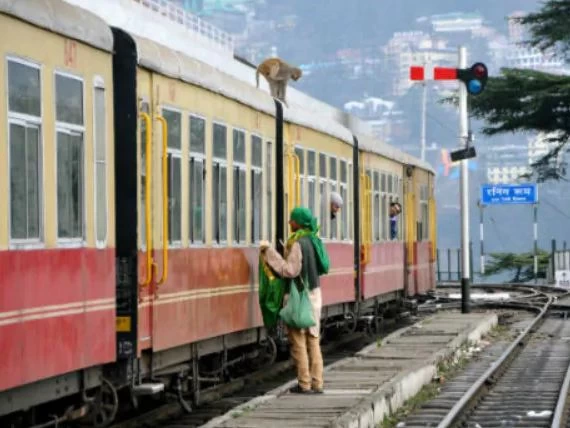Union minister Nirmala Sitharaman today proposed public-private partnerships in Railways to build more tracks and increase connectivity across the country.
Indian Railways, the largest rail network in the world, has been owned by the government since its inception by the British in 1853.
Over the last years, following huge losses, the government has initiated several efforts to reverse the tide.
Last year, railways minister Piyush Goyal, who is handling the portfolio in the second term of the Narendra Modi government, said his focus was to increase the capacity of railways though enhanced signalling and adding more lines, along with cost-cutting in the loss-making passenger sector.
The railways' revenue comes from the freight section, but much of it is lost in subsidies in the passenger sector.
In the run-up to the budget, the opposition alleged that the government big initiative for privatisation will begin with the railways.
An editorial in the CPM mouthpiece People's Democracy suggested that the Niti Aayog has announced that 46 public sector enterprises will be sold off or shut down as per a 100 day action plan. According to an action plan proposed by the Railway Ministry, private passenger trains will be operated within 100 days, the editorial said.
On Tuesday, UPA chairperson Sonia Gandhi opposed a railway ministry proposal in the Lok Sabha to corporatise its production units, including the Modern Coach Factory in her Lok Sabha constituency of Rae Bareli, alleging that it was the "first step" towards the privatisation of railways.
Raising the issue in Zero Hour in parliament, she accused the government of selling the country's assets to private players at throwaway prices.
"Those who don't understand the real meaning of corporatisation.... It is actually the first step towards privatisation. They are selling the country's assets to a handful of private players at a throwaway price. This will leave thousands unemployed," she said.


